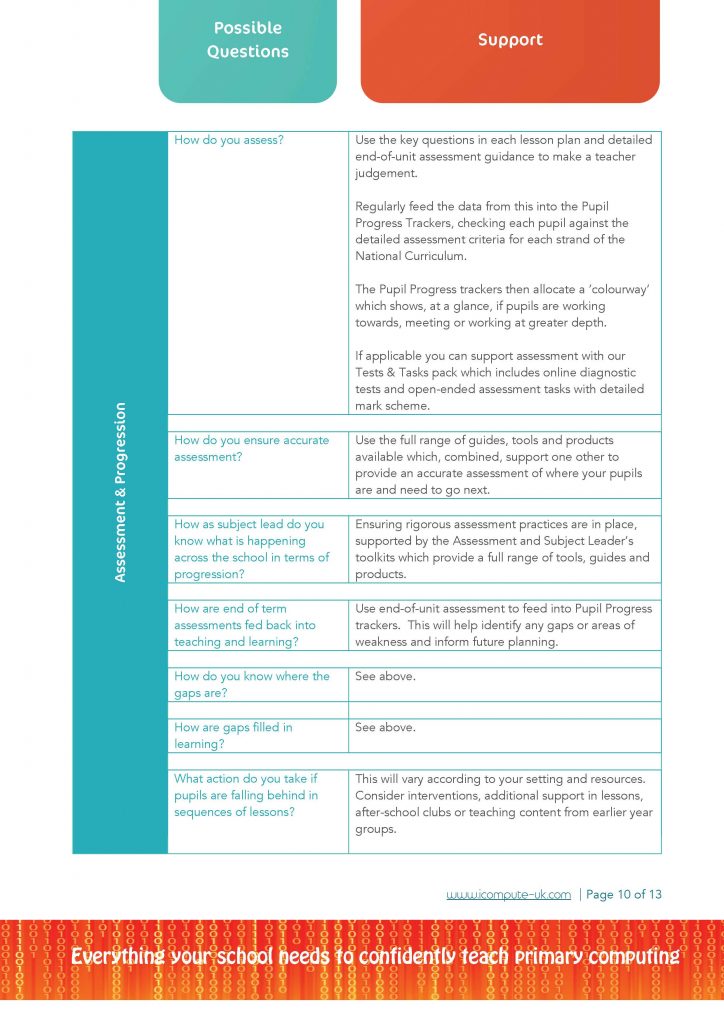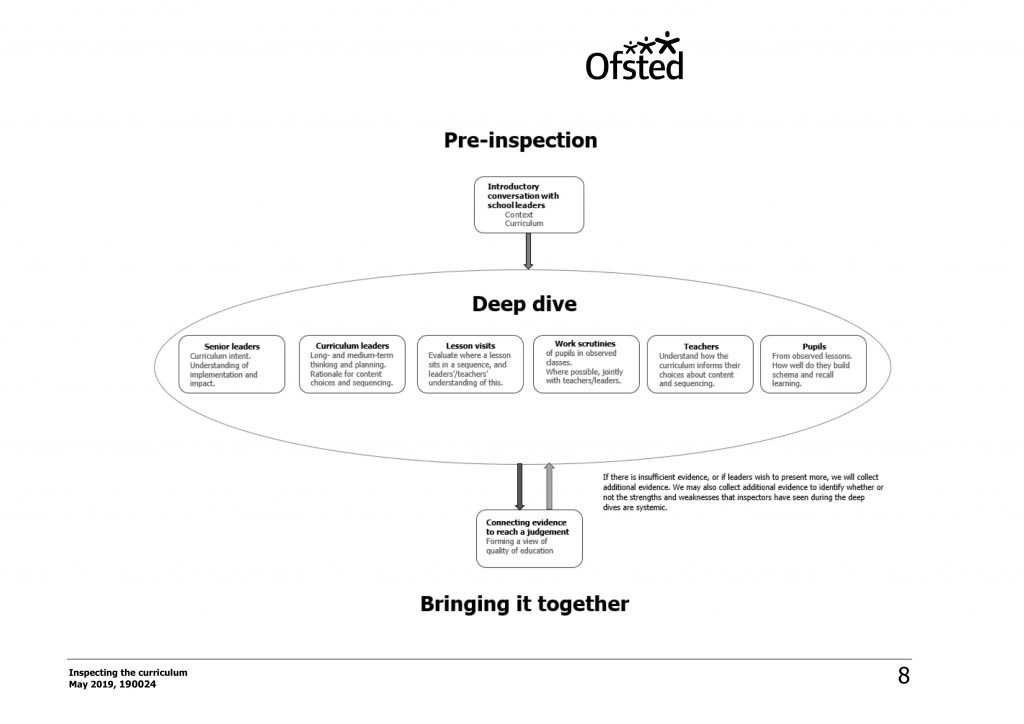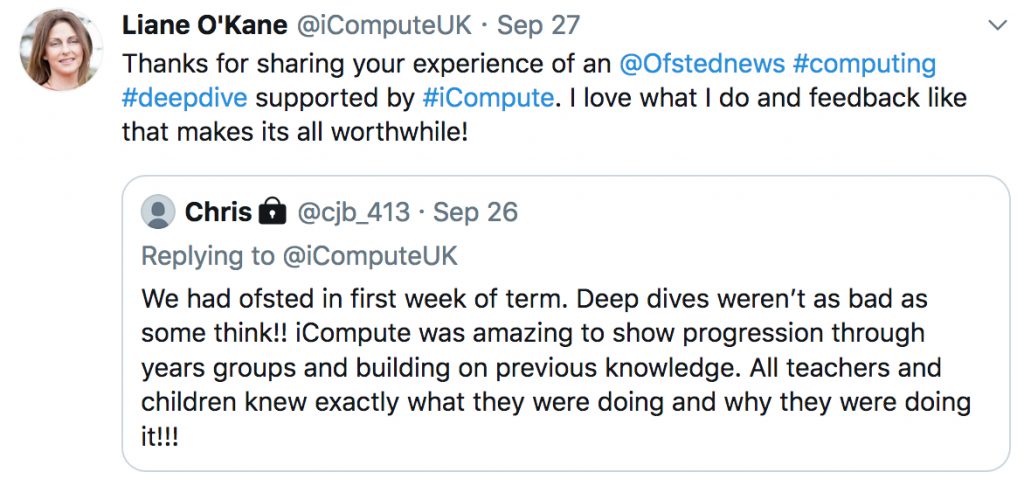Ofsted will be “deep diving” into a selection of subjects during their inspections with the “curriculum at the heart of inspection” focusing on curriculum intent, implementation and impact. I’ve previously written an article on this called inspecting computing for computing subject leaders. Now, with the benefit of feedback from schools using iCompute who’ve undergone a deep dive for computing – and widely published Aide Memoir and Inspector subject training guidance provided by Ofsted – I explore what a deep dive for computing looks like with the aim of helping prepare computing leads.
You can download a copy of my comprehensive guide to the Ofsted Framework and Ofsted Deep Dives for Computing at the end of this post. It’s been updated to include dozens of Ofsted Deep Dive questions our schools have been asked and the school friendly questions suggested by Ofsted along with details of how iCompute helps schools answer them.

According to Ofsted the aim of the deep dive “is to allow inspectors to gather the evidence necessary to form an accurate evaluation of how education flows from intention to implementation to impact within a school“. Inspectors will always carry out an inspection of one or more foundation subjects.
The deep dive will include evaluating leader’s planning, discussing rationale for curriculum content and sequencing. Then discussion with teachers about how the curriculum informs their choices about content and sequencing for effective learning. Inspectors will also be looking at “deliberately and explicitly” connected sample lessons and work scrutiny. They will talk to pupils about their learning from observed lessons with a likely focus on the content of their lessons and retention of prior learning.

Quality of Education
A good place to start for computing leads is Ofsted’s curriculum indicators expected to be associated with curriculum quality. Whilst not specific to computing, the indicators offers some insight as to what inspectors will be looking for and allow leaders to begin to assess the quality of computing education they are currently providing.
As a curriculum designer and computing leader, what leaps out to me from the indicators are:
Curriculum
1c – importance of knowledge progression and concept sequencing
1d – inclusive and progressive
2a – Meets the NC at the very least
Leaders
3a – have clear roles and responsibilities
3b – have subject knowledge, expertise and skill
3c – regularly review and QA computing
4a – provide CPD
4b – enable expertise to develop throughout the school
5a – curriculum resources enable effective curriculum implementation
6a – curriculum has sufficient depth and coverage
6c – curriculum mapping ensures full coverage of NC
7c – the curriculum is delivered as planned
Work Scrutiny
Scrutinising the product of computing can be more challenging for computing given that often the work will be digital. I’ve written extensively elsewhere on this blog about how teachers can manage digital artifacts and organise work in such a way as to demonstrate progression. The key points for an Ofsted deep dive are that computing leads need to be able to show that the work builds on prior learning, the pupils’ work shows that a broad range of topics are being learned, pupils retain knowledge and can talk about their work, progression is being made and pupils regularly revisit and practice what they know.
Quality Computing
Every subject leader is tasked with being an advocate for, champion of and expert in their subject. Computing presents its own challenges as subject few teachers have been trained to teach. It has been statutory since 2014 and many schools are still falling well short of expectations.
I welcome Ofsted’s focus on subject leadership and ‘the three I’s’. For too long, ICT and computing have been sidelined by some schools depriving pupils of their entitlement to a quality computing education.
The new framework and its subject deep dives puts the responsibility for the quality of computing education where it should be: in the hands of the subject leads. It encourages them to look carefully at their curriculum and resources they are offering, its delivery and its effect on pupil progression. Ultimately, it empowers leaders to make the necessary changes to ensure they are providing the high quality computing education their pupils are entitled to, deserve and need.






Pingback: Understanding Primary Computing and Ofsted - iCompute
Pingback: Ofsted Review of Computing - iCompute